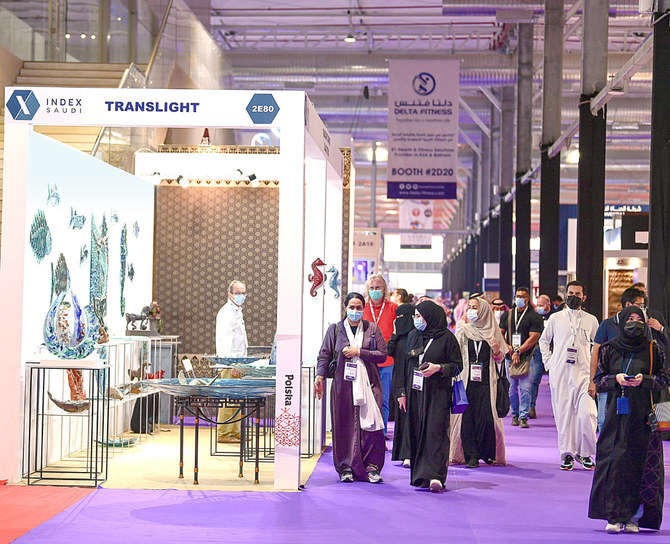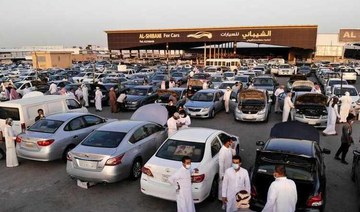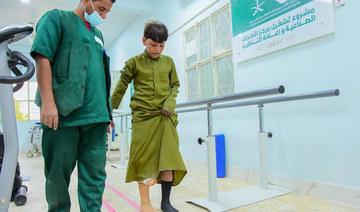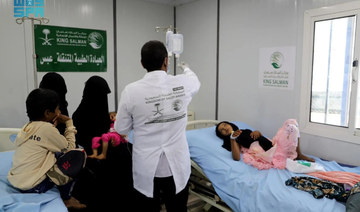RIYADH: With thousands of industry professionals attending, Saudi Arabia’s premier interior design and trade show INDEX Saudi offers a platform for buyers and sellers to engage in business-to-business networking.
Running from Tuesday to Thursday at the Riyadh Front Exhibition & Conference Center, the show gives participants the chance to discuss market needs and trends to drive their industry forward.
“It’s a very good opportunity for business to business and business to individual networking with peers in the industry,” Faiza Abdullah Al-Sarami, owner and designer of Sama creation, told Arab News.
“We support hotels with artwork and furniture, we support individuals as well with art and interior design,” she added. “Hopefully, this exhibition will help us to find our target.”
The numerous construction projects taking place in the Kingdom offer a big boost for the interior design market, she said. “With a lot of projects around, especially in Riyadh, as the city is fast expanding, there is fair chance for business to grow.”
Patryk Kocimski, CEO of Polish company Handicraft Design participating at the INDEX Saudi, said Saudi Arabia is a “very good country for international business.”
He said: “I have met several people and spoken to them and discussed market needs and trends in the furniture segment and what we can provide, the response is good.”
Osama Alzoubi, interior designer at Ebreez, said that the show has brought people from the industry after a global halt for one and a half years due to the pandemic.
Ahmed Saleh Al-Aqeel, deputy general manager of Alaqeel furniture factory, said that their business provides services to hotels, compounds, resorts and stores, and the presence of international hotels and big companies from the US, Europe and other parts of the world is “a big B2B opportunity for us.”
He said that many construction projects, including megaprojects, are going on as part of the Saudi Vision 2030, and the platform connects interior suppliers and manufacturers with interior designers, architects, project managers and retailers who are involved in these fit-out projects across the Kingdom.
The forum will cater to the demands of construction projects including the Red Sea Development Project, NEOM, Qiddiya, AMAALA, Diriyah, Al Widyan, King Salman Park, Jeddah Tower, Riyadh and Jeddah Metro and others.
The residential interiors sector in Saudi Arabia is growing very fast. Developers are investing about $10.7 billion in construction of residential, and commercial projects, boosting the demand for residential interiors.
Saudi Arabia is the Middle East’s largest construction market, making it the region’s largest interior design and fit-out buyer, with an interior market value of $3.5 billion.
With the entertainment industry opening its doors to the world and relaxing laws to encourage tourism, the Kingdom is gearing up for a massive change.
Jasmeet Bakshi, group event director at the DMG Events and organizer of the Hotel Show, said that the three-day event “has opened with a great success, reinforcing the importance of live networking, relationship building and trade within the sector.”
The hotel show and the entertainment expo running alongside it opened with a strong belief in recognizing the Saudi talent abounding in the hospitality, tourism and entertainment sectors.
With youth in Saudi Arabia being encouraged to choose local hospitality and tourism sectors for their careers, a robust growth in the industry is expected.
Luis Salgueiro, CEO of ZADK and hospitality leadership forum speaker at the show, said: “After the pandemic, I believe the future of the food and beverages market will definitely keep rising. The food and beverages sector in Saudi Arabia is the largest in the Middle East based on recent studies. Saudi Arabia has a value of $45 billion.”
James Barlow, export manager at Rainbow productions, a world leader in manufacturing bespoke brand and sports mascots, said that he is exhibiting in Saudi Arabia for the first time.
“We see a lot of prospects for the future. We have made a good profile here, having worked with Al-Othaim. We are here to further build on it,” he said. “Saudi Arabia is definitely an emerging market, and we want to make sure that we are at the forefront of it.”




























